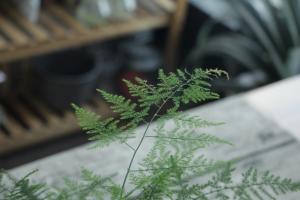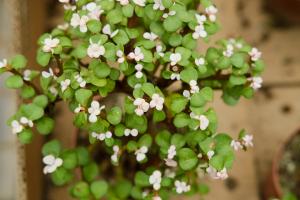Can Soapy Water Hurt Plants?
Soapy water is often used as an alternative to harsher chemicals to clean plants, kill pests, and fertilize soil. However, the question remains: can soapy water hurt plants? The answer is not a straightforward one, as it depends on the concentration of soap used and the type of plants being treated.
The Effects of Soap on Plants
Soapy water can have both positive and negative effects on plants. On the one hand, it can kill certain pests, such as aphids and spider mites, that can damage plants. Soap also has the ability to remove unwanted substances from the leaves of plants, such as dust and grime, that can hinder photosynthesis. This can help plants to grow taller, healthier, and stronger.
On the other hand, soapy water can be harmful to plants if it is too concentrated or if it is used on plants that are sensitive to soap. Soap can dry out the leaves of plants, leading to leaf burn or leaf drop. It can also disrupt the natural balance of microorganisms in the soil that are essential for plant growth.
What Plants are Sensitive to Soap?
Some plants are more sensitive to soap than others. Plants with delicate, thin leaves, such as ferns and succulents, are more likely to be harmed by soapy water. Similarly, young plants and newly planted seeds are more vulnerable to drying out and damage from soap. It is best to test a small area of the plant with soapy water before treating the whole plant to avoid causing harm.
How to Use Soapy Water on Plants Safely
If you want to use soapy water on your plants, it is important to dilute the soap sufficiently to avoid harming the plant. A concentration of one tablespoon of soap per gallon of water is generally safe for most plants. Avoid using dish soap or hand soap, as these can contain harsh chemicals that can harm your plants. Instead, use a mild liquid soap that is free from dyes and perfumes.
When applying soapy water to plants, ensure that it does not get into the soil or onto the roots. This can disrupt the natural balance of microorganisms that are essential for plant growth. It is also important to rinse the plant thoroughly after using soapy water to remove any soap residue that can harm the plant.
The Bottom Line
Soapy water can be a safe and effective way to clean plants and control pests, but it must be used in the right way. Dilute the soap appropriately, test a small area of the plant first, and avoid using it on plants that are sensitive to soap. With these precautions in mind, you can safely use soapy water to help your plants thrive.

 how many times do yo...
how many times do yo... how many planted tre...
how many planted tre... how many pine trees ...
how many pine trees ... how many pecan trees...
how many pecan trees... how many plants comp...
how many plants comp... how many plants can ...
how many plants can ... how many plants and ...
how many plants and ... how many pepper plan...
how many pepper plan...































